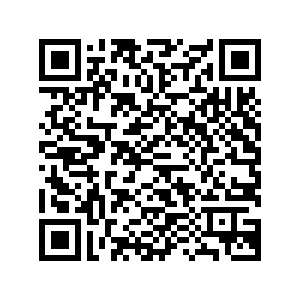by Naim-Ul-Karim
DHAKA, Nov. 30 (Xinhua) -- Months after unveiling a reference lending rate, known as the "SMART," the central bank of Bangladesh has withdrawn the restriction on the interest spread between loans and deposits to bolster the government's efforts of reining in the skyrocketing inflation, a senior official said Thursday.
Executive Director of Bangladesh Bank (BB) Md Mezbaul Haque told Xinhua that BB lifted the spread limit as part of its move to gradually liberalize the new interest rate regime following the introduction of SMART (the six-month moving average rate of treasury) lending rate, under which banks can impose a 3.75-percent margin on the SMART.
He said the relaxation will enable the commercial banks to set deposit interest rates according to their specific needs.
"All the banks were notified the decision regarding withdrawal of loan-deposit spread limit in a circular issued on Wednesday," he said.
The official, also spokesman of BB, added banks must determine the interest spread, capped at a maximum margin of 2.75 percent using SMART interest spread, for pre-shipment export loans as well as agricultural and rural loans.
In order to enhance the market-driven determination of interest rates, BB introduced the SMART with a designated margin to calculate the interest spread since July.
BB in 2018 instructed banks to maintain a 4-percent restriction on interest spread for the distribution and recovery of loans and deposits, excluding credit cards and consumer loans.
The latest decision came days after the central bank raised the policy rate, also known as the repo rate, by 50 basis points to bring inflation to its comfort zone. The new policy rate, effective on Monday, is 7.75 percent.
With shrinking forex reserves-depressed imports, Bangladesh's trade deficit in the last 2022-23 fiscal year dipped by 48.41 percent year on year to 17.16 billion dollars.
In its bid to boost Bangladesh's shrinking forex reserves, which dropped to less than 20 billion dollars last week, the bank had earlier taken various measures to discourage imports and check soaring inflation.
Bangladesh's average inflation reportedly rose 9.93 percent in October, way above the central bank's target of 6 percent for the current fiscal year from July 2023 to June 2024.
Abdoulaye Seck, World Bank country director for Bangladesh and Bhutan, said inflation is likely to remain elevated in the near term and pressure on the external sector is expected to persist in Bangladesh in the 2023-24 fiscal year depending on global conditions, domestic exchange rate, and monetary and fiscal policies.
BB in mid-June announced the monetary policy for the first six months of the 2023-24 fiscal year, lifting the interest cap on bank loans.
The new monetary policy reads BB intends to introduce a market-driven reference rate for all types of bank loans, replacing the previously imposed lending rate cap, which was 9 percent.
Analysts said Bangladesh's ecomony is very likely to face more challenges in the coming months as the country's political uncertainty aggravates ahead of the parliament polls slated for Jan. 7, 2024.
Demanding polls under a non-party caretaker government, Bangladeshi opposition parties including ex-Prime Minister Khaleda Zia's Bangladesh Nationalist Party have called the countrywide strike and blockade of roads, rail lines, and waterways for the seventh time since last month ahead of the national election.
The latest 48-hour countrywide blockade and strike called by the BNP and its allies including Jamaat have been underway since Wednesday morning.
The ongoing opposition movement has reportedly led to vandalism of vehicles and arson attacks, with deadly clashes between police and workers erupting in Dhaka and elsewhere in the country almost every day. ■
